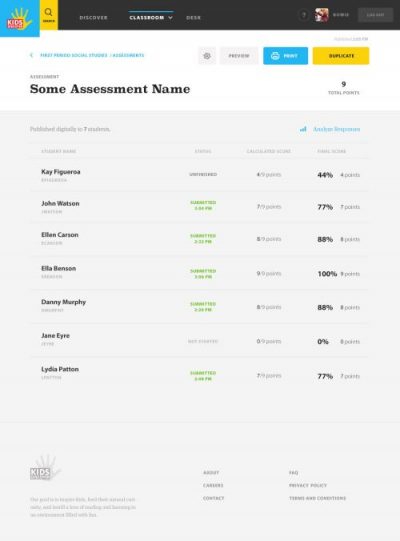How to Help Your Child Get Over Test Anxiety

Today, standardized tests dominate education more than ever before. If your child attends public school, he will likely have to take important state tests that often determine whether or not he will be promoted to the next grade level.
As a result, many children suffer from test anxiety. Before a test, they feel worried and afraid that they won’t perform well.
This is often a self-fulfilling prophecy: Students who excessively worry that they’ll fail a test often do just that. Additionally, you don’t want your child to spend so much time stressed and anxious at a young age.
Fortunately, there are a few things you can do to combat your child’s test anxiety.
Prepare, Prepare, Prepare
One of the most effective ways to help your child feel more confident about any test is to prepare. Your child’s teacher should also be preparing him to take the test, but a little extra practice at home can give your child’s confidence a boost.
Go over the format of the test with your child, and help him practice sample questions. If possible, have your child complete full practice tests to build familiarity with the structure and content.
Try starting with easier questions to gradually build your child’s confidence. You can also teach your child test-taking strategies, such as:
- Using process of elimination
- Skipping difficult questions and returning to them at the end if time remains
- Not second-guessing once an answer has been selected
Keep practice sessions short, upbeat, and encouraging. Feeling prepared for the test will ease some of your child’s anxieties.
Write it Out
Sian Beilock, professor of psychology at the University of Chicago, conducted an experiment in which freshmen high school students were asked to write down concerns about their first final beforehand. They were also asked to connect these feelings to other times when they felt similarly.
Many students’ writing revealed a realization that the test was a minor hurdle and not as scary as they had initially thought. For students who reported high levels of test anxiety, the activity resulted in a gain of six percentage points on their test scores. These students also felt lower levels of stress and anxiety.
Having your child write or talk about his test anxiety will also help alleviate it. Ask your child what’s the worst that can happen and what he can do to prevent this worst-case scenario. What other scenarios are more likely to happen than the worst possible outcome?
Practice Calming Strategies
Despite preparing for the test and venting his anxieties, your child may still feel worried during the exam. Arm him with calming techniques in case this does occur.
For instance, teach your child deep breathing and mindfulness techniques. Tell him if he feels worried to focus on 5 things he can see, 4 things he can touch, 3 things he can hear, 2 things he can smell, and 1 thing he can taste. This helps your child feel grounded in the moment instead of being distracted by worries and fears.
Many children also bring “worry stones” or lucky charms to tests, which they can hold or finger like a stress ball.
Conclusion
Talking about his fears, feeling prepared for the test, and knowing that he’s armed with useful strategies and calming techniques will help your child feel much more confident.
Reducing test anxiety will not only help your child feel happier and less stressed, but it’ll also boost his test scores!






